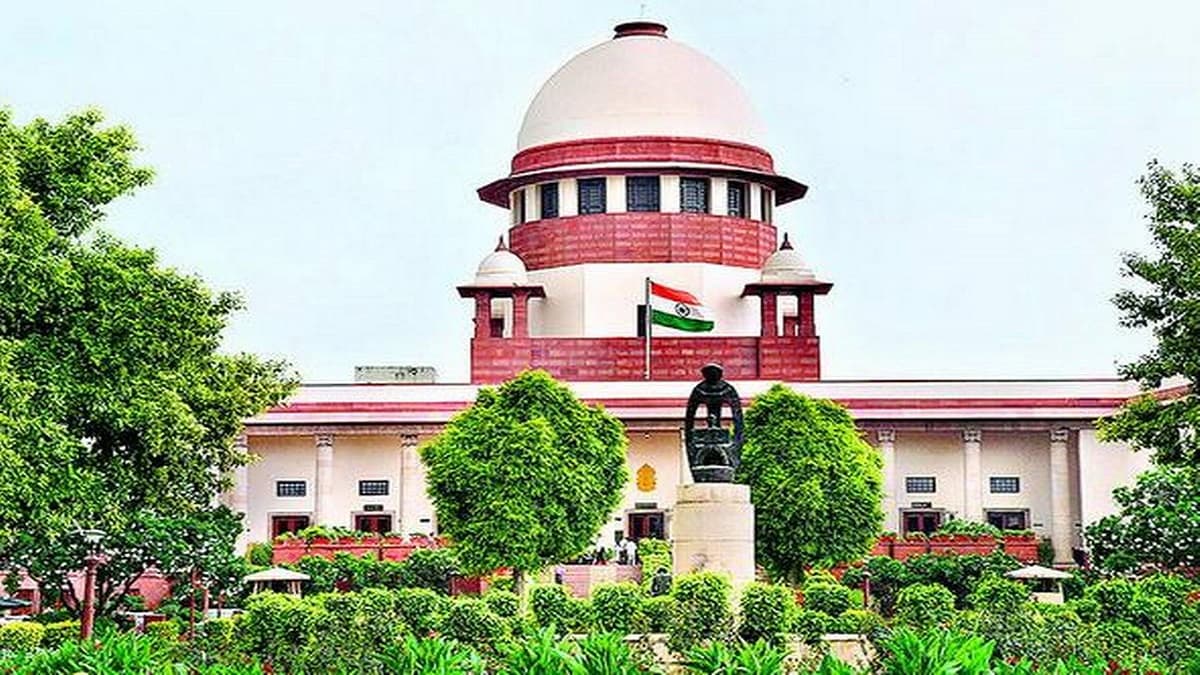
SC Grants Bail to Arvind Kejriwal; Refers Legal Question on PMLA to Larger Bench
Delhi CM will remain in custody as he faces charges in a case initiated by CBI
In a significant development, the Supreme Court on Friday granted interim bail to Delhi Chief Minister Arvind Kejriwal in the money laundering case initiated by the Enforcement Directorate (ED) in relation to the now-scrapped Delhi Excise Policy.
A Bench of Justices Sanjiv Khanna and Dipankar Datta stated that certain legal questions raised by Kejriwal in his plea challenging his arrest need to be considered by a larger bench of the top court.
Hence, while referring the matter to a larger bench, the Court deemed it appropriate to release Kejriwal on interim bail.
"Given that the right to life is concerned and since the matter is referred to a larger bench, we direct Arvind Kejriwal to be released on interim bail," the Court ordered.
Kejriwal was arrested by the ED on March 21 in a case alleging that a criminal conspiracy was hatched by Aam Aadmi Party (AAP) leaders, including Manish Sisodia and others, to create loopholes in the Delhi Excise Policy of 2021-22 to favour some liquor sellers.
The investigation agencies alleged that the funds garnered from this exercise were used to fund AAP's election campaign in Goa.
In its order passed today, the Court said that the legal question regarding the "necessity to arrest" under Section 19 of the Prevention of Money Laundering Act (PMLA) needs to be considered by a larger bench of the top court.
Section 19 provides that if the ED, on the basis of material in its possession, has reason to believe that any person has been guilty of an offence punishable under PMLA, it may arrest such person.
Senior Advocate Abhishek Manu Singhvi, appearing for Kejriwal, argued that the material cited by the ED now to defend Kejriwal's arrest was not present during his arrest and was produced later.
"All this evidence predates July, August 2023, and was in the Sisodia case... So what was new in the Arvind Kejriwal case?... The evidence is all prior to August 2023," Singhvi said.
There was no material on the "grounds of arrest" given to Kejriwal about the use of funds in the Goa elections, the senior counsel added.
"The entire charge is from August 2023. This is old news... There was an arrest in March 2024... No money has been transferred," he submitted.
Singhvi argued that there should be a "necessity to arrest" as a precondition under Section 19 PMLA.
Meanwhile, Additional Solicitor General SV Raju argued that the ED need not supply incriminatory material against an accused at the time of arrest.
"The reason to believe (that an accused has committed an offence) is the material before him (ED officer). In criminal law, they are not entitled to any copy before the chargesheet is filed...
Otherwise, evidence will be tampered with and witnesses will be threatened," ASG Raju said.
The Court today stated that the mere "need to interrogate" a person does not imply a necessity to arrest that person.
Whether "need and necessity" should be formal parameters of arrest and whether they can be read into Section 19 needs to be examined by a larger bench, the top court said.
However, despite being granted bail in the ED case, Kejriwal will remain in custody as he faces charges in a case initiated by the Central Bureau of Investigation (CBI).
For any enquiries or information, contact ask@tlr.ae or call us on +971 52 644 3004. Follow The Law Reporters on WhatsApp Channels.